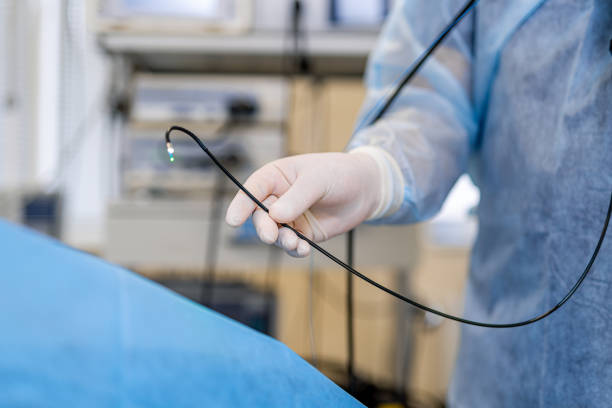Colorectal cancer is a type of cancer that develops in the colon or rectum. It is one of the most common types of cancer diagnosed in both men and women. According to the American Cancer Society, colorectal cancer is expected to cause over 52,000 deaths in the United States in 2022.
In Canada, it is estimated that there will be 27,400 new cases of colorectal cancer and 9,500 deaths from the disease in 2022. The incidence of colorectal cancer has been increasing in younger individuals in recent years, with approximately 12% of cases occurring in people under 50.

These statistics highlight the importance of early detection and screening for colorectal cancer. Detecting cancer in its early stages increases the chance of successful treatment and improved survival rates. That is why knowing the different Colorectal Cancer symptoms is equally important.
What Are the Causes of Colorectal Cancer?
The exact cause of colorectal cancer is not fully understood. Still, research suggests that a combination of genetic and environmental factors can increase the risk of developing this type of cancer. Here are some of the known risk factors for colorectal cancer.

Age
The risk of colorectal cancer increases as you get older, with the majority of cases diagnosed in individuals over 50 years of age.
Family History
Individuals with a family history of colorectal cancer or certain inherited genetic conditions, such as Lynch syndrome or familial adenomatous polyposis (FAP), have an increased risk of developing the disease.
Personal History of Colorectal Cancer or Polyps
Individuals who have previously had colorectal cancer or certain polyps are at an increased risk of developing the disease again.
Lifestyle Factors
A diet high in red and processed meats, low in fruits and vegetables, physical inactivity, obesity, smoking, and heavy alcohol consumption have all been linked to an increased risk of colorectal cancer.
Certain medical conditions
Individuals with a history of inflammatory bowel diseases (IBD), such as ulcerative colitis or Crohn’s disease, are at an increased risk of developing colorectal cancer.
It is important to note that having one or more risk factors does not necessarily mean an individual will develop colorectal cancer. Regular screening and early detection can help identify the disease in its early stages when it is most treatable.
What are the Top Colorectal Cancer Symptoms?
Colorectal cancer can cause various symptoms, and some people with the disease may not experience any symptoms. However, the following are some of the most common Colorectal Cancer symptoms you should not ignore.

- Change in Bowel Habits- This can include a persistent change in the frequency or consistency of bowel movements, such as diarrhea, constipation, or narrow stools. You may also feel like you need to have a bowel movement but cannot.
- Rectal Bleeding- This can include blood in your stool, on the toilet paper after wiping, or in the toilet bowl after a bowel movement.
- Abdominal Discomfort or Pain- This can include cramping, bloating, or abdominal discomfort, which may be severe and persistent.
- Unexplained Weight Loss-If you are losing weight without trying, this could be a symptom of colorectal cancer.
- Fatigue or Weakness: This can be caused by anemia, which can occur due to rectal bleeding.
It is important to note that these symptoms can also be caused by other conditions and may not necessarily indicate colorectal cancer. However, if you experience these symptoms, you must speak with your doctor, especially if they persist for over a few weeks.
It is also important to note that some people with colorectal cancer may not experience any symptoms until the disease has progressed to a more advanced stage. This is why regular screening is so essential for the early detection and treatment of colorectal cancer.
How Colorectal Cancer is Diagnosed
Colorectal cancer can be diagnosed through a combination of medical history, physical examination, and diagnostic tests. Colorectal Cancer screening tests also help in the early detection of the disease. Here are the most common ways that colorectal cancer is diagnosed:

- Medical History and Physical Exam- Your doctor will ask you about your medical history and any symptoms you are experiencing. They will also perform a physical exam to check for any signs of abnormalities in your abdomen or rectum.
- Colonoscopy– Is a procedure in which a flexible tube with a camera is inserted into the rectum and colon to examine the lining for abnormal growths, such as polyps or tumours. If any abnormal growths are found, a biopsy may be performed to determine if they are cancerous.
- Fecal Immunochemical Test (FIT): This simple test checks for blood in your stool, which can be a sign of colorectal cancer. The test is recommended every year starting at age 50 for people at average risk.
- CT Colonography- This type of CT scan examines the colon for polyps or tumours. It is recommended every five years starting at age 50 for people at average risk.
- Flexible Sigmoidoscopy- This is similar to a colonoscopy but only examines the rectum and lower part of the colon. It is recommended every five years starting at age 50 for people at average risk.
- Fecal Occult Blood Test (FOBT)- This simple test checks for blood in your stool, which can be a sign of colorectal cancer. A positive FOBT result may lead to further testing.
- Imaging Tests- Imaging tests, such as a CT scan or MRI, may be performed to get a better view of the colon and surrounding tissues to look for signs of cancer.
- Blood Tests- Blood tests may be done to check for signs of anemia or other abnormalities that could indicate colorectal cancer.
It is important to note that regular screening is recommended for people at average risk of colorectal cancer, even if they are not experiencing any symptoms. Screening tests can help detect the disease in its early stages when it is more treatable.
Talk to your doctor about when and how often you should be screened for colorectal cancer based on age, family history, and other risk factors.
Is There a Colorectal Cancer Drug Trial?
Hope is not lost. With all the advancements in technology and health, many colorectal cancer drug trials are underway. Here are a few examples.
- The BEACON CRC trial is a Phase 3 study evaluating the efficacy and safety of a combination of targeted therapies (encorafenib, binimetinib, and cetuximab) in patients with metastatic colorectal cancer with specific genetic mutations.
- The KEYNOTE-177 trial is a Phase 3 study evaluating the use of pembrolizumab, a type of immunotherapy, as a first-line treatment for patients with advanced colorectal cancer that is mismatch repair deficient or microsatellite instability-high.
- The TRIBE2 trial is a Phase 3 study comparing different chemotherapy regimens in patients with advanced colorectal cancer.
- The IDEA-FRANCE trial is a Phase 3 study evaluating the optimal duration of adjuvant chemotherapy in patients with stage III colon cancer.
Frequently Asked Questions
Is colorectal cancer curable?
Colon cancer is a highly treatable and often curable condition when limited to the gut. About 50% of patients who have surgery are cured. Nonetheless, recurrence after surgery is a significant issue and frequently the cause of death.
What are the silent signs of colon cancer?
It is believed that colon cancer is a silent illness. There are often no symptoms. People may encounter symptoms such as altered bowel patterns, stomach pain, blood in the stool, and weight loss. People may already have an advanced form of the disease if they exhibit these symptoms.
Can I survive colorectal cancer?
90% of patients diagnosed with cancer, when it is localized, will survive. The 5-year survival rate is 73% if cancer has progressed to the nearby tissues or organs and/or the local lymph nodes. The 5-year survival rate is 17% if the malignancy has progressed to distant organs.
Let us stay connected in our social media accounts for more healthcare discourse. Follow us on LinkedIn, Instagram, Twitter, Pinterest, TikTok, and Facebook now!
Hostalky is a healthcare helper app! Get your hands on this new application today and download it here on the Google Play Store and Apple App Store.